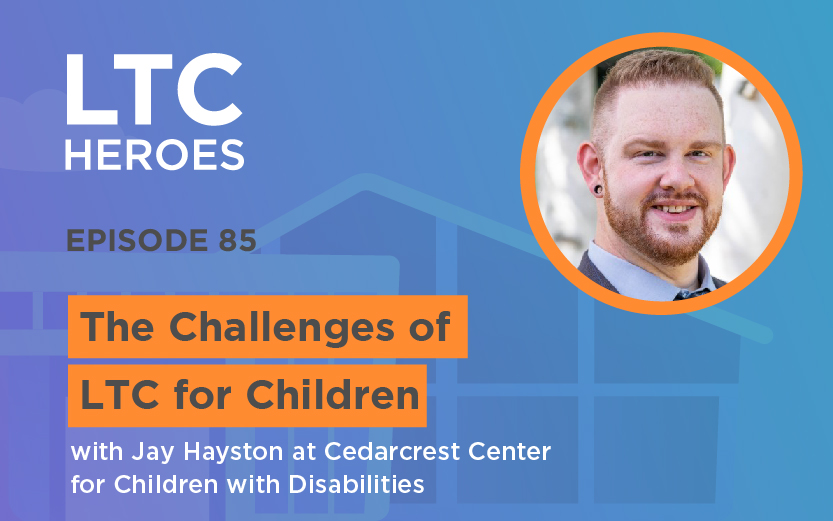On this episode, we speak to Jay Hayston, President & CEO at Cedarcrest Center for Children with Disabilities, a specialized medical facility and school in Keene, New Hampshire.
Topics discussed include:
– The mission of Cedarcrest as a home and a school for children with developmental differences.
– Jay’s beginnings in LTC for people with developmental differences.
– The way Cedarcrest works as a step-down facility for a transition between the hospital and home care.
– Jay’s mentors and his philosophy of servant leadership.
– The challenges of running a facility with a small constituency.
– The learning skills gained outside of the subject matter by getting a doctorate.
– The importance of the continuum of care when working with children.
Rapid fire Q/A
How did you get started in the field?
My original plan was to study English then go to law school. The summer after I graduated from high school, I did a paid summer internship at the state facility for folks with developmental differences. They offered me a job after that summer.
What was the biggest learning curve for you as a lawyer in long-term care?
For me, it was to learn to know your enemy. As I got further along in my career, I struggled with the idea of for-profit entities and public/private partnerships. This inspired me to get my MBA so I could understand all aspects of the industry.
Do you have a story of an “aha moment” that made an impact on you professionally?
It’s going to sound a little strange, but it was the first time I had my nose broken at work. I was dealing with some folks with really challenging behavior, and I had an altercation with a patient who ended up breaking my nose. I took that as a sign that I didn’t handle the situation in the best way, and it changed my approach.
What are the biggest challenges you face on a daily basis?
We work with the most medically fragile children in three states. So we’re the only pediatric post-acute setting in New Hampshire, Vermont or Maine. And so the children that we work with, are often referred directly from hospital pediatric intensive care units or neonatal intensive care units. The biggest challenge we face is getting the medical needs out of the way so the kids can be kids.
What is your favorite part of the week?
I try to reserve a few hours each week to sit down with a staff person who doesn’t report to me directly, or a child or a family member or guardian, and just ask them for their story. It ends up being some of my most productive time. I think, as leaders, often we overcomplicate our business. Most of my good ideas come directly from someone who’s actually doing the work.
What is something you want people to know about what you do?
Those of us that work in pediatric post-acute settings represent a really small but very vital part of a continuum of care. I don’t think it gets a lot of press because it’s a very low occurrence, but a very high need.
We appreciate you listening and we are motivated by your feedback. Visit LTCHeroes.com to learn more about us and head to LTCHeroes.com/community to join our exclusive Facebook group for nurses and our exclusive LinkedIn group for long-term care owners. We look forward to seeing you inside the community.
Sponsored by Experience.Care
This episode is brought to you by Experience.Care, the only long-term care EHR backed by guarantees.
Your profitability is our priority and your compliance, our cause. Since 1969.
Get your profitability consultation today at Experience.Care/guarantee. Our website is .Care for a reason. We care about your care. Visit us at Experience.Care.
#longtermcare

